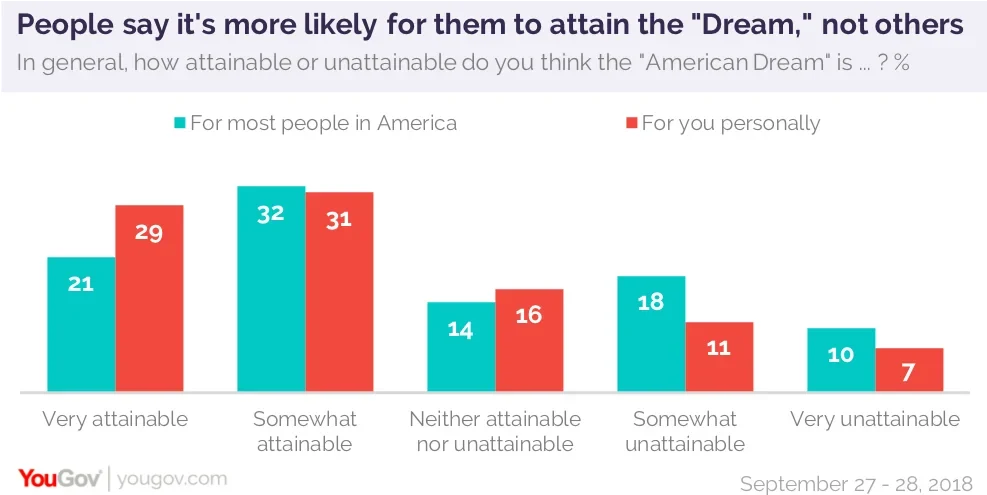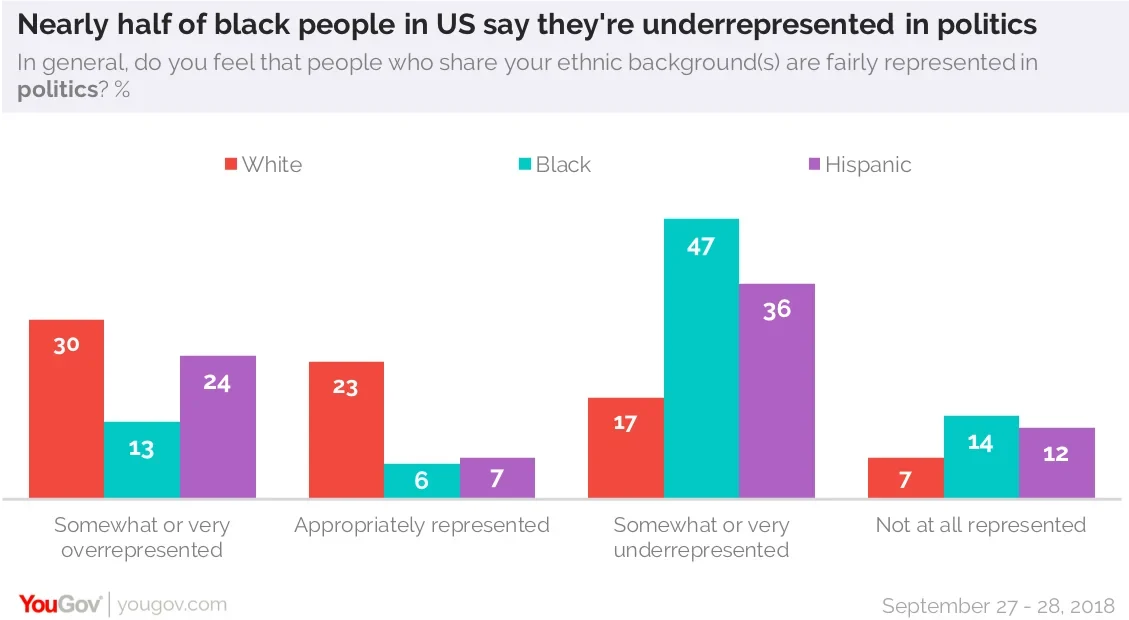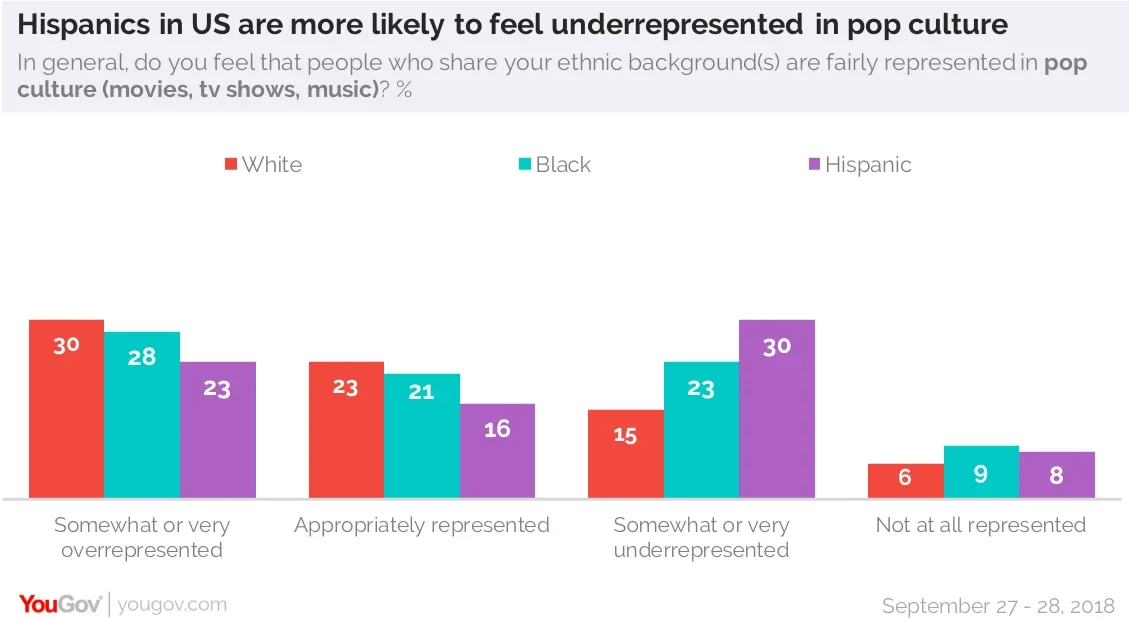Black and Hispanic people in the US are less likely to feel represented in politics and pop culture
The American Dream can be a difficult concept, but many people in the US agree on a definition and feel that it is generally attainable, according to new data from YouGov Omnibus. However, there are also many people who don’t necessarily see themselves reflected in American culture or politics.
More than two-thirds (68%) of Americans agreed with a definition of the American Dream as “the belief that anyone, regardless of where they were born or what socioeconomic class they were born into, can attain their own version of success.”
More than one-quarter (28%) of Americans think the American Dream is unattainable for most people living in America. But only 18% say it’s unattainable for them personally. Similarly, this view is also reflected in the fact that 60% say they think they personally can attain the American Dream, while a slightly lower number (53%) think that most people can attain the American Dream.

People between 18 and 34 years old (51%) are the least likely to say that they think the American Dream is attainable for them. Those between 35 and 54 were more likely (61%) to say it’s attainable for them, while Americans over 55 are the most confident that they can reach the American Dream - 67% think so.
Perceptions about the American Dream can also be influenced by how a person sees themselves fitting into America. Perhaps unsurprisingly, white people in the US feel more represented in both politics and pop culture than black or Hispanic people do.
Almost one quarter (23%) of white people say they’re “appropriately represented” in politics, compared to only 6% of black people and 7% of Hispanic people. Nearly half (47%) of black people say they’re under-represented in politics, while 14% of this demographic says they are not represented at all. Over one-third of Hispanics (36%) say they’re under-represented in politics, while 12% say they aren’t represented at all.

When it comes to pop culture, black (21%) and Hispanic (16%) people are more likely to say they feel appropriately represented, but they’re still more likely to feel under-represented.

Though they’re less likely to feel represented in politics and pop culture, black and Hispanic people living in the US are more likely to feel connected to their ethnic background, and more likely to have celebrations or practices tied to their background. A vast majority (86%) of black people in the US report feeling “somewhat” or “very” connected to their ethnic background, as do 73% of Hispanic people. Slightly more than half (56%) of white people in the US said they feel connected to their background. Hispanics living in the US are most likely to report that they have cultural celebrations, with 54% saying this is the case. About one-third (32%) of black people and 19% of white people responded similarly.
When asked which three qualities best define “American values,” the most popular responses are: independence (43%), liberty (43%), and equality (35%). These responses are closely aligned with the qualities that many people say determine their own personal values. The most popular answers for which three qualities define one’s personal values were: independence (43%), equality (32%) and friendliness (31%).
See full results here.
Learn more about YouGov Omnibus.
Image: Getty








